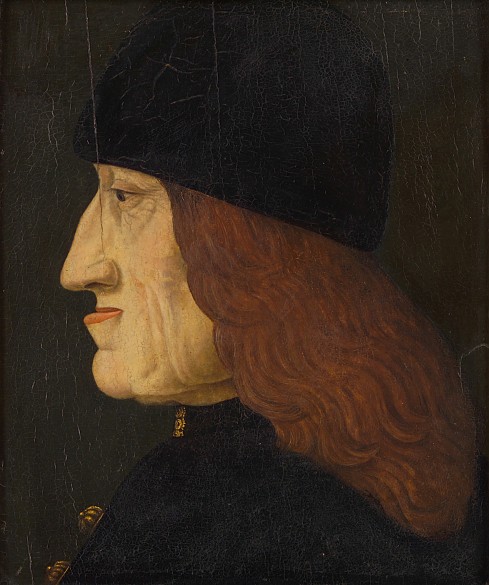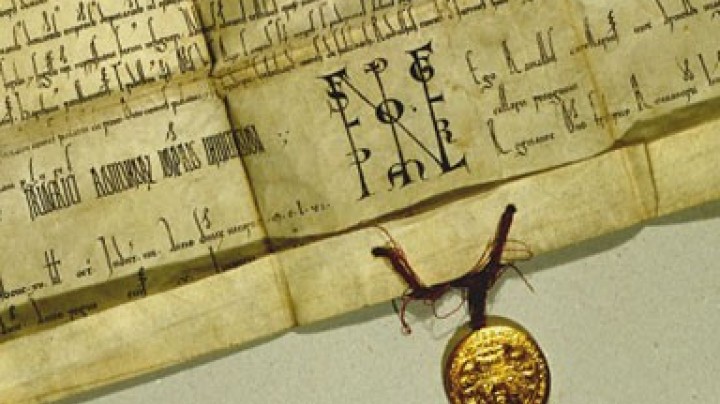Turbulent times: Frederick’s exploits in Bohemia and Hungary
As Frederick’s ward, Ladislaus was a valuable – albeit his only – pawn in his bid for power in Bohemia and Hungary. The monarchs of these kingdoms, George of Poděbrady and Matthias Corvinus, were to prove dangerous adversaries for Frederick.
Bohemia was suffering from the consequences of the Hussite Revolution which had led more or less to a state of civil war. The moderate representatives of the new doctrine among the nobility gained the upper hand under the leadership of George of Poděbrady (1420–1471), a Bohemian nobleman who had been appointed to administer the realm in 1448 after occupying Prague in a military coup. In his position as guardian to the young king Ladislaus, Frederick was forced to accept Poděbrady as the de facto ruler of the kingdom. At first the two men were bound by an alliance of convenience, and George of Poděbrady took Frederick’s side in the latter’s conflict with his brother Albrecht VI.
The Bohemian Estates were demanding that Ladislaus be released to them. Frederick initially resisted their demands, insisting that his nephew was still a minor. However, in 1452 Frederick lost control over his valuable ward when a group of opposition nobles abducted the boy. In 1457 Ladislaus died suddenly; there were rumours that Poděbrady had had the seventeen-year-old poisoned. In 1458 the Bohemian Estates elected George of Poděbrady as king.
As king, Poděbrady was an outsider among the European monarchs in that he was not a Catholic but an adherent of Ultraquism, a more moderate variant of Hussitism. The Catholic Bohemian nobility refused to swear fealty to him, especially after he had been excommunicated by the pope in 1465. Frederick exploited the situation, placing himself on the side of Poděbrady’s adversaries, who included Matthias Corvinus.
Matthias Corvinus (1443–1490) already possessed the Hungarian crown as he had been elected king by a majority of the Hungarian Estates at the age of fourteen. Matthias was the son of John Hunyadi, a minor noble from Transylvania who had become vicar of the Empire while the throne was vacant following Sigismund’s death and had built up his authority on the back of his military successes in defending the realm against the Turks.
However, some of the Hungarian nobility favoured Frederick, who also had custody of the Crown of St Stephen. This crown was the pre-eminent symbol of the Hungarian state and a coronation could not take place without it. A compromise was arrived at: in return for releasing the crown Frederick received a handsome sum of money and was pledged a number of western Hungarian dominions.
Matthias Corvinus proved to be a dangerous adversary, both to Frederick and to George of Poděbrady. First Corvinus attempted to dethrone his former mentor and supporter Poděbrady, occupying Moravia and having himself proclaimed anti-king. Stylizing himself as faithful ally of Rome and saviour of the West from the Ottoman peril, he received support from the pope and the Catholic nobility in the Bohemian lands, who had refused to accept a Hussite king. In 1471, in the midst of this conflict, George of Poděbrady died. His succession on the Bohemian throne became an object of contention between the Hungarian king Matthias and Ladislaus II from the Polish-Lithuanian Jagiello dynasty which was already in possession of the Polish crown.













